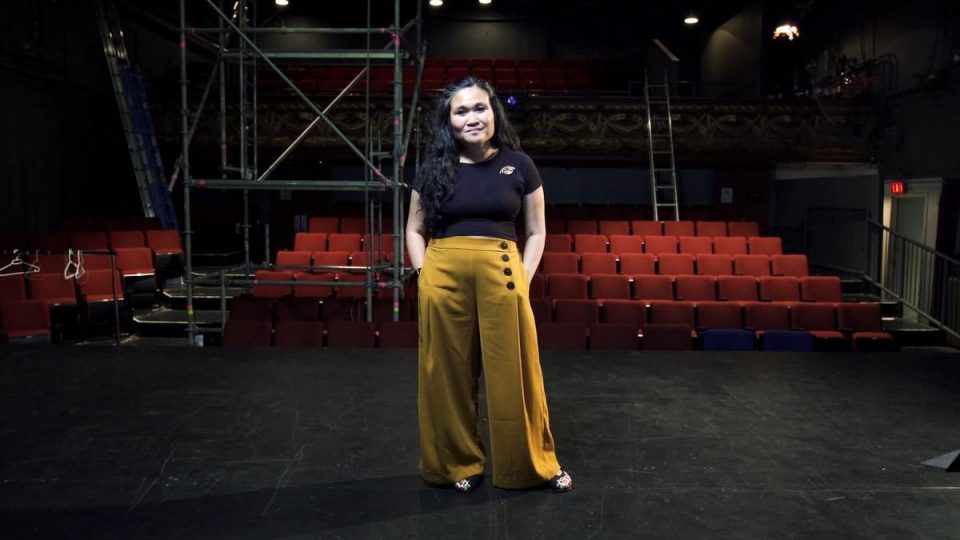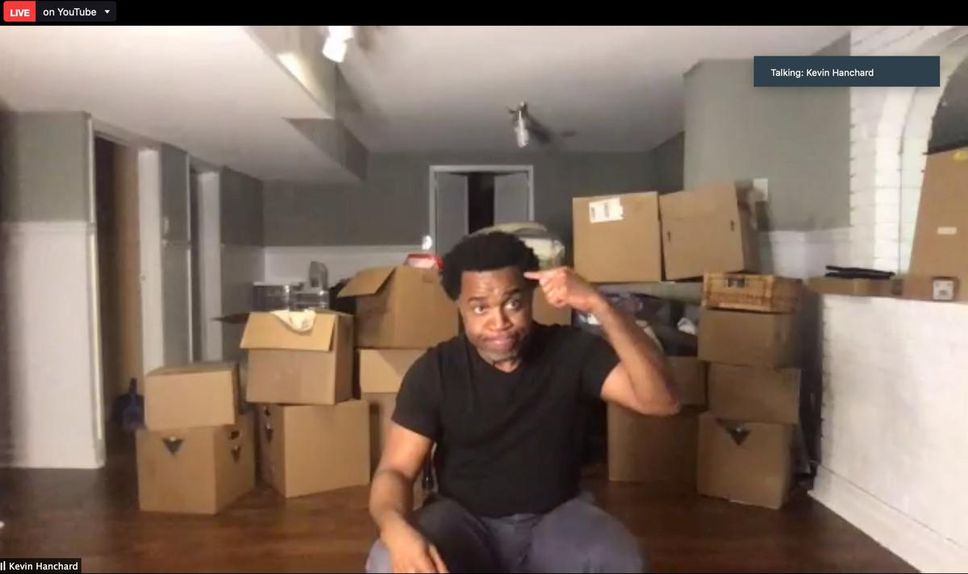When the pandemic hit a year ago, Factory Theatre was coming to the end of what should have been a celebratory 50th anniversary season.
A touring production of Ghost River Theatre’s “ONE” had to be cancelled, while a second, “House” by actor/playwright Daniel MacIvor went from multiple performances to a one-night-only “virtual” live production from the basement of an actor’s home.
Since then, artistic director Nina Lee Aquino has had to imagine — or reimagine — how to deliver Factory’s signature brand of Canadian-focused drama at a time when theatres are shuttered and audiences told to stay home. The company, founded in 1970 by veteran director/playwright Ken Gass and Frank Trotz, commissions and produces exclusively Canadian works and has served as a training ground for artists in all disciplines and from diverse communities.
It has helped immeasurably that TD Bank Group, a long-time corporate friend and sponsor, stepped up with a generous grant which has allowed Factory Theatre to offer a digital program to its audiences free of charge.
“TD is not a stranger to Factory Theatre. We’ve had a long-term relationship with them for various projects. I was really moved. Instead of retreating and they had every right to do so … they (TD) were really receptive to any new ideas we had to continue engaging with our audiences. For me, TD just came through,” Aquino said.
“If we’re going to really talk about connecting with our audiences, old and new, and keeping up some kind of cultural morale … just to keep the spirits up, just to keep hope alive, then let’s do this and let our audiences access our programming for free. So without batting an eyelash, they (TD) loved the idea and said ‘yeah, we’re in,’ ” she said.
In coming weeks, Factory Theatre is launching two new productions.
One is a series of five plays commissioned by Factory and told through an audio format, a sort of return to the concept of an old-fashioned radio play with an eye to the popularity of modern podcasts. It’s called “You Can’t Get There From Here” and features stories set throughout Toronto. It’s set to run from March 25 to April 22.
The second production is a remounting of “Through the Eyes” by acclaimed playwright Don Druick, which first premiered in 1995. It tells the story of Italian artist Gian Lorenzo Bernini, set in the 17th century court of the Sun King, Louis XIV. The show will be performed live to virtual audiences — in Factory’s rehearsal hall space, hopefully — from April 29 to May 8.
Aquino noted that the past year and the year ahead have been about “agility and being able to flexible in a time of crisis.”
That’s included investing in new cameras and sound technology and adapting quickly and nimbly to changed circumstances.
For example, in the one-night production of “House” last May, MacIvor was prevailed upon to lightly “tweak” his original script and actor Kevin Hanchard performed the show in the basement of his new home with his sons acting as stage hands.
The performance drew an audience of 2,000 including people from across Canada and even a couple from Australia.
Last fall, Factory commissioned playwright David Yee’s “acts of faith,” which was performed live for six virtual shows from Nov. 19 to 28 from Factory’s rehearsal hall, drawing a nightly audience of more than 300.
“(The show) was a hybrid of a lot of things but I would say theatre still led the way,” Aquino said.
For the upcoming production of “You Can’t Get There From Here,” rehearsals were held through Discord, a website similar to Zoom. Actors had hoped to meet face-to-face in the CBC’s Glenn Gould Studio to record their performances but the studio insisted face masks must be worn by the two- and three-member casts. With voice clarity paramount, it was a non-starter.
Aquino said she chose the radio drama format for a particular reason.
“I know that at some point people are so tired of looking at their screens. I love podcasts and I love radio dramas and the idea is for our audience members to close their eyes, put on their headphones and listen to a good story, engaging their imaginations in a different way,” Aquino said.
As shows are cancelled and opportunities lost, the pandemic has taken a toll on the artistic community, the theatre community particularly, and Aquino, who serves as president of the Professional Association of Canadian Theatres, said she’s hearing it from companies and artists across the country.
Loading…
Loading…Loading…Loading…Loading…Loading…
“Right now, everybody’s morale is low and there’s so much unknown. Going into the pandemic, we already had our struggles. We already feel undervalued, we already feel underfunded. So it’s not great. It’s what keeps me up at night,” she said.
Playwright Anusree Roy’s “Sisters” — a story of two sisters who are immigrants to Toronto — is one of the five radio dramas. Roy said she enjoyed the challenge of writing a play for ears following a year in which both parents came down with COVID-19 and had to be hospitalized.
“It was completely different for me. Even when I write for television, I’m always thinking visually. While I was writing, I would very consciously read the lines out loud to myself … and listen to what I was hearing,” Roy said.
Actor Craig Lauzon, who has one of two voice roles in “First Métis Man in Odessa,” a love story about two people from very different backgrounds said acting with audio-only is a challenge.
“You have to really put it into your voice how you’re feeling. You can’t raise an eyebrow, you can’t take a pause on stage and turn to the audience. It all has to be audible. It’s different. I haven’t done something like this before,” Lauzon said.
Playwright Keith Barker, who wrote “Every Minute of Every Day,” a memory play set in our ever-changing city, said his initial response to the pandemic was dramatic.
“At first, I think I was paralyzed by everything. You’re watching these things unfold and I was scared and I didn’t really feel like writing,” Barker recalled.
Over the past year, Barker said he has known many in the artistic community who have had to make life-changing choices, such as moving out of Toronto, as opportunities dried up. One friend ended up moving to North Bay and working at Home Depot.
“We’re losing a lot of designers, actors … directors. Those people are having to make other choices and shift and think about what their life is like outside of the arts,” Barker said.
Actor Marcel Stewart, who’s making his first foray into directing with the audio play, “The Toronto Pigeons,” a whimsical story from a bird’s-eye perspective, said the past year has taught him a lesson in equanimity.
“There were some really great roles and plays I was going to be part of that had to be curbed because of what happened. I still have a roof over my head and I still have food on my table. But I recognize that there’s a lot of people who are suffering and I don’t know what it’s going to be like to come out of this,” Stewart said.
Aquino said she’s hopeful — despite the fact the Factory will almost certainly remain closed to live performances for the rest of the year — as “virtual” performances have demonstrated a way to reach an even wider beyond those sitting in the theatre.
“A lot of people ask me all the time, do you think this (virtual performance) is the way forward? And I go, ‘why does it always sound like it’s an either-or?’ When we go back to live theatre, who’s to say theatre companies can’t have both virtual and in-person. For me, the more forms of art, the more forms of storytelling that we discover, the better. It just makes the tapestry of the work we do better,” Aquino said.
“We’re figuring it out as we go but there’s definitely not a dull moment,” she added.



